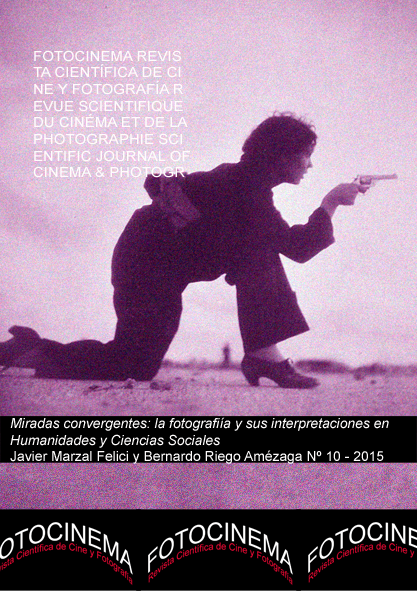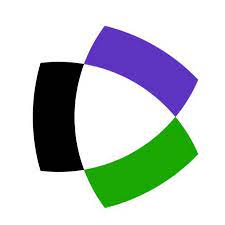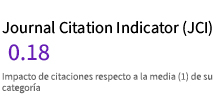Un segundo más y los caciques desaparecerían. El flash político de Julián Barón
DOI:
https://doi.org/10.24310/Fotocinema.2015.v0i10.5989Abstract
Resumen:
El flash automático se ha convertido en una técnica acomodaticia que tiene cierto efecto liberador: parece permitirle al fotógrafo relajar su servidumbre ante la luz natural mientras promete un instante congelado desligado de la duración. Es por eso por lo que el flash perturba para siempre la mirada fotográfica. Proclive a la sorpresa y retador de la oscuridad, es un dispositivo indiscreto que facilita el registro y a veces sortea la temporalidad que exige la formulación estética en ese acto de registro de lo real. Contra este automatismo mental aparece el fotolibro C.E.N.S.U.R.A. de Julián Barón (2011) en el que utiliza el flash para arrojar luz en condiciones de oscuridad simbólica. El fotógrafo se sirve de la sobreexposición de la imagen para ironizar sobre la sobreexposición mediática de las figuras políticas y consigue deslumbrar tanto a los fotografiados como al espectador. Cada fogonazo nos distancia, desnaturaliza la imagen y nos advierte de la inercia visual. Sus fotografías podrían parecer imágenes quemadas, fotos para descartar. Pero antes de poder ignorarlas Barón ya nos ha despertado.
Abstract:
The automatic flash has become a comfortable technique that has liberating effect: it seems to allow the photographer to relax with natural light while promising a frozen instant detached from the duration. It is for this reason that the flash disturbs forever the photographic gaze. Prone to surprise and challenger of darkness, it is an intrusive device that makes the registration of reality easier and sometimes avoids the temporality that the act of registration of the real demands. Against this mental automatism the photobook C.E.N.S.U.R.A., by Julian Baron (2011) uses the flash to illuminate dark conditions displayed symbolically. Photographer uses the overexposure of the photo to satirize about media overexposure of political figures and blinding both the photographed and the viewer. Each flash sets distance, distorts the image and warns us of the visual inertia. His photographs may appear burnt images, photos to reject. But before we can ignore them Baron has already awakened us.
Palabras clave:
flash; sobreexposición; fotografía documental; fotolibro; corrupción; política.
Keywords:
Flash; Overexposure; Documentary Photography; Photobook; PoliticsDownloads
Metrics
Publication Facts
Reviewer profiles N/A
Author statements
Indexed in
-
—
- Academic society
- N/A
- Publisher
- Universidad de Málaga
Downloads
Published
How to Cite
Issue
Section
License
All contents published in Fotocinema Revista científica de cine y fotografía are protected under the Creative Commons Attribution-NonCommercial-ShareAlike 4.0 International (CC BY-NC-SA 4.0) license. All about this license is available in the following link: <http://creativecommons.org/licenses/by-nc-sa/4.0>
Users can copy, use, redistribute, share and exhibit publicly as long as:
- The original source and authorship of the material are cited (Journal, Publisher and URL of the work).
- It is not used for comercial purposes.
- The existence of the license and its especifications are mentioned.
There are two sets of authors’ rights: moral and property rights. Moral rights are perpetual prerogatives, unrenounceable, not-transferable, unalienable, imprescriptible and inembargable. According to authors’ rights legislation, Fotocinema. Revista científica de cine y fotografía recognizes and respects authors moral rights, as well as the ownership of property rights, which will be transferred to University of Malaga in open access. The property rights are referred to the benefits that are gained by the use or the dissemination of works. Fotocinema. Revista científica de cine y fotografía is published in an open access form and it is exclusively licenced by any means for doing or authorising distribution, dissemination, reproduction, , adaptation, translation or arrangement of works.
Authors are responsable for obtaining the necessary permission to use copyrighted images.














13.png)



